Elena (2011): family and money | la familia y el dinero
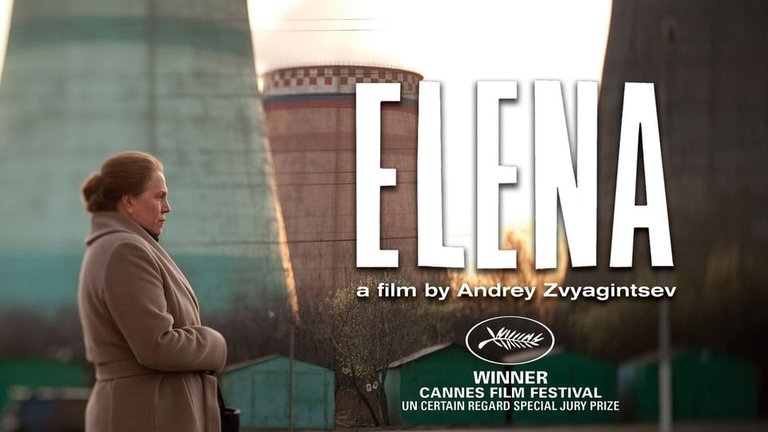
After having wandered through previous decades in my last publications (a Fellini film from the sixties, a war drama from the eighties and a cult film by Lars von Trier from the nineties), it was time to return to more recent times and to some name that I hadn't visited in a while, so I didn't hesitate when, among my to-watch list, I read the name of Andrey Zvyagintsev, one of the best Russian film directors of recent times.
Después de haberme paseado por décadas anteriores en mis últimas publicaciones (una cinta de Fellini de los años sesenta, un drama bélico de los ochenta y una película de culto de Lars von Trier de los años noventa), era hora de volver a épocas más recientes y a algún nombre que tuviera tiempo sin visitar, así que no lo dudé cuando, entre mi lista de pendientes, leí el nombre de Andrey Zvyagintsev, uno de los mejores directores de cine rusos de los últimos tiempos.
The script for Elena was written by Zvyagintsev himself together with Oleg Negin with whom he also collaborated in the writing of his next two feature films (highly recommended), Loveless and Leviathan, and although in all of them there's a story with a family nucleus, are quite different from each other. In the case of the film discussed in this post, I think it's necessary to give some context before posing the central dilemma of the story. Elena is an older woman who has been married to Vladimir, also older, for two years. They met a decade ago in a clinic where Elena worked as a nurse, love arose and they decided to get married years later. It's important - because it's part of the conflict - to mention that Vladimir is a very wealthy man, while Elena belongs (or belonged) to an economic class with more limitations. He, a widower, has an only daughter with whom he speaks little (she doesn't seem to get along with her father) and he has no grandchildren. For her part, Elena has an only son who, married and with two children, Elena's grandchildren, one of them a teenager, lives in the suburbs in more limited conditions, which is why Elena passes him some money from time to time, something that Vladimir doesn't agree with - he himself lent her money years ago and it has not been returned - but both he and Elena try not to interfere with the relationship that each has with their respective children.
El guión de Elena fue escrito por el propio Zvyagintsev junto a Oleg Negin con quien colaboró también en la escritura de sus siguientes dos largometrajes (altamente recomendados), Loveless y Leviathan, y aunque en todos ellos hay una historia con un núcleo familiar, son bastante diferentes entre sí. En el caso de la película a conversar en este post, creo que es necesario dar algo de contexto antes de plantear el dilema central de la historia. Elena es una mujer mayor que está casada con Vladimir, también mayor, desde hace dos años. Se conocieron una década atrás en una clínica en la que Elena trabajaba como enfermera, surgió el amor y decidieron casarse años más tarde. Es importante - porque es parte del conflicto - mencionar que Vladimir es un hombre muy adinerado, mientras que Elena pertenece (o pertenecía) a una clase económica con más limitaciones. Él, viudo, tiene una única hija con quien habla poco (no parece llevarse bien con su padre) y no tiene nietos. Por su parte, Elena tiene un único hijo que, casado y con dos hijos, nietos de Elena, uno de ellos adolescente, vive en los suburbios en condiciones más limitadas, razón por la cual Elena le pasa algo de dinero de vez en cuando, algo con lo que Vladimir no está de acuerdo - él mismo le prestó dinero años atrás y no le ha sido devuelto - pero ambos, él y Elena, intentan no interferir con la relación que cada uno tenga con sus respectivos hijos.
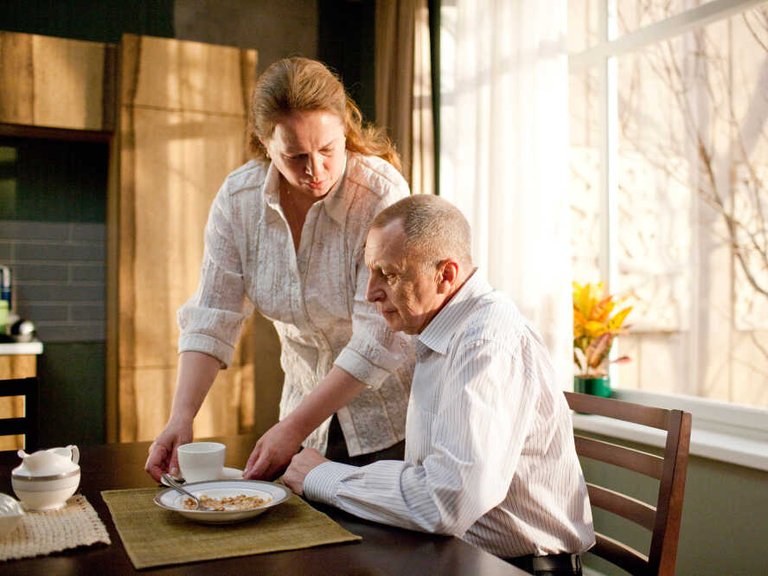
An interesting topic is already raised there. Since they are both an older couple, it seems sensible that they not mix the way they treat their adult children into their relationship, but if that starts to generate arguments and some uncomfortable comparisons, should they look for a way to integrate the other members of the family? Or keep them completely separate because, so Vladimir tells Elena, "I married you, not your family"?
Ya allí se plantea un tema interesante. Siendo que ambos forman una pareja ya mayor, parece sensato que no mezclen en su relación la forma en que tratan a sus hijos ya adultos, pero si eso comienza a generar discusiones y algunas incómodas comparaciones, ¿deberían buscar la forma de integrar a los demás miembros de la familia? ¿o mantenerlos totalmente aparte porque, somo le dice Vladimir a Elena, "yo me casé contigo, no con tu familia"?
In the midst of this dilemma, a key situation in the plot arrives. Elena's eldest grandson, now a teenager, is on the wrong path, and his future has two options: either he goes to the army, something that Elena and her son want to avoid; or he is going to study at a university, but the family doesn't have the money for that. Elena's son is lazy and irresponsible. He has problems getting and keeping jobs and is the father of two children, one still very young, and instead of solving things on his own, he goes to his mother, who is over sixty years old, who, although she lives more well-off, does so with a money that is not hers (or is it because she is married to Vladimir?); and she, like every mother who loves her children always and no matter what, also helps him thinking about her grandson. That's why Elena asks Vladimir for money to send Sasha (this is the name of her eldest grandson) to university, something that after a little thought, the man rejects. It's not his responsibility, it's not his family (is that right?) and it's not his fault that Elena's son cannot provide his family with what they need. It's understandable, it's easy to agree with Vladimir, despite his harshness, because it's effectively not his responsibility, but is it very harsh? Shouldn't he be more charitable to the family of the woman he loves and with whom he shares his life? There are several questions that begin to run through the viewer's mind.
En medio de este dilema, llega una situación clave en la trama. El nieto mayor de Elena, ya adolescente, anda en malos pasos, y su futuro tiene dos salidas: o bien va al ejército, algo que Elena y su hijo quieren evitar; o va a estudiar a una universidad, pero la familia no tiene dinero para eso. El hijo de Elena es un vago y un irresponsable. Tiene problemas para conseguir y mantener trabajos y es padre de dos niños, uno muy pequeño aún, y en lugar de resolver por su cuenta, acude a su madre, de más de sesenta años, que si bien vive más acomodada, lo hace con un dinero que no es suyo (¿o acaso sí lo es por estar casada con Vladimir?); y ella, como toda madre que ama a sus hijos siempre y sin importar nada, lo ayuda también pensando en su nieto. Es por eso que Elena le pide a Vladimir dinero para enviar a Sasha (este es el nombre de su nieto mayor) a la universidad, algo que después de pensar un poco, el hombre rechaza. No es su responsabilidad, no es su familia (¿es así?) y tampoco es su culpa que el hijo de Elena no pueda proveer a su famillia lo necesario. Es entendible, se hace fácil darle la razón a Vladimir, a pesar de su dureza, porque efectivamente no es su responsabilidad, pero ¿acaso es muy duro? ¿no debería ser más caritativo con la familia de la mujer que ama y con quien comparte su vida? Son varias las preguntas que comienzan a rondar por la mente del espectador.
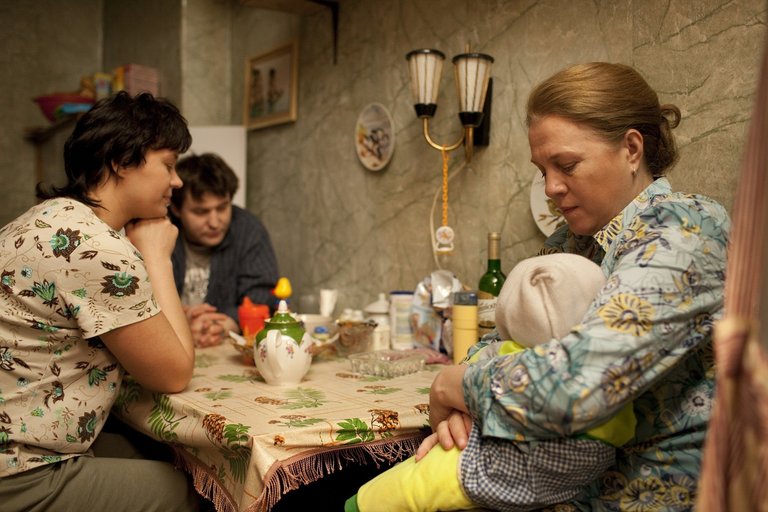
When a sudden heart attack confirms Vladimir's weakness and old age, he decides to rewrite his will. He wants to leave everything in the name of his daughter Katya, the same one who doesn't visit him and who doesn't treat him very well when they see each other, and bequeath a monthly pension to Elena, enough for her to live on, but no more. Elena, in her position as a wife, feels uncomfortable, a victim of injustice because isn't she his wife? Doesn't she have the right to something more?
Cuando un repentino ataque cardíaco confirma la debilidad y la vejez de Vladimir, él decide reescribir su testamento. Quiere dejar todo a nombre de su hija Katya, la misma que no lo visita y que no lo trata muy bien cuando se ven, y legarle una pensión mensual a Elena, suficiente para que pueda vivir, pero no más. Elena, en su posición de esposa, se siente incómoda, víctima de una injusticia porque ¿acaso no es su esposa? ¿no tiene derecho a algo más?
To tell more about the plot would not only be revealing some interesting and surprising twists, but unnecessary because the central dilemmas have already been raised. Elena is built on the contrast between antagonistic elements: wealth and poverty, old age and youth, charity and meanness, duties and rights, parents and children; and it does so with a solid script that makes very good use of the prolonged silences of its characters, beautiful photography that uses many long, still shots of empty (or almost empty) spaces, acting that lives up to the emotional requirements, and a disgruntled protagonist who's torn between two loves that she feels, for her husband and for her son, much more than she says, but she shows it in her face, in her gestures and in her eyes. This is the fourth film I've seen by Andrey Zvyagintsev and I have found them all wonderful. In addition to the already mentioned Loveless and Leviathan I saw The Return (I still have to see The Banishment) and each of them seemed exceptional to me, including this one that won the Un Certain Regard award at the Cannes Festival. I know little about contemporary Russian cinema, but if I broaden my focus, Zvyagintsev seems to me to be one of the best European film directors of today, as dear to me as Paweł Pawlikowski, Lars von Trier, Thomas Vinterberg and Wim Wenders, to name a few. Have some of you seen this Russian director's films? What is your favorite? I read you in the comments.
Contar más sobre la trama no sólo sería revelar algunos giros interesantes y sorpresivos, sino innecesario porque los dilemas centrales ya han sido planteados. Elena se edifica sobre el contraste entre elementos antagónicos: riqueza y pobreza, vejez y juventud, caridad y mezquindad, deberes y derechos, padres e hijos; y lo hace con un guión sólido que utiliza muy bien los prolongados silencios de sus personajes, una fotografía hermosa que emplea muchos planos largos y quietos de espacios vacíos (o casi vacíos), actuaciones a la altura de los requerimientos emocionales y una protagonista contrariada que se debate entre dos amores que siente, por su esposo y por su hijo, mucho más de lo que dice, pero que lo demuestra en su rostro, en sus gestos y en su mirada. Esta es la cuarta película que veo de Andrey Zvyagintsev y todas me han parecido maravillosas. Además de las ya mencionadas Loveless y Leviathan vi The Return (aún me queda por ver The Banishment) y cada una de ellas me ha parecido excepcional, incluida esta que obtuvo el galardón de Un Certain Regard en el Festival de Cannes. Es poco lo que conozco de cine ruso contemporáneo, pero si amplío el enfoque, Zvyagintsev me parece de los mejores directores de cine europeos de la actualidad, tan querido para mí como Paweł Pawlikowski, Lars von Trier, Thomas Vinterberg y Wim Wenders, por nombrar algunos, ¿han visto las películas de este director ruso? ¿cuál es su favorita? Los leo en los comentarios.
Reseñado por @cristiancaicedo
Other posts that may interest you | Otros posts que pueden interesarte:
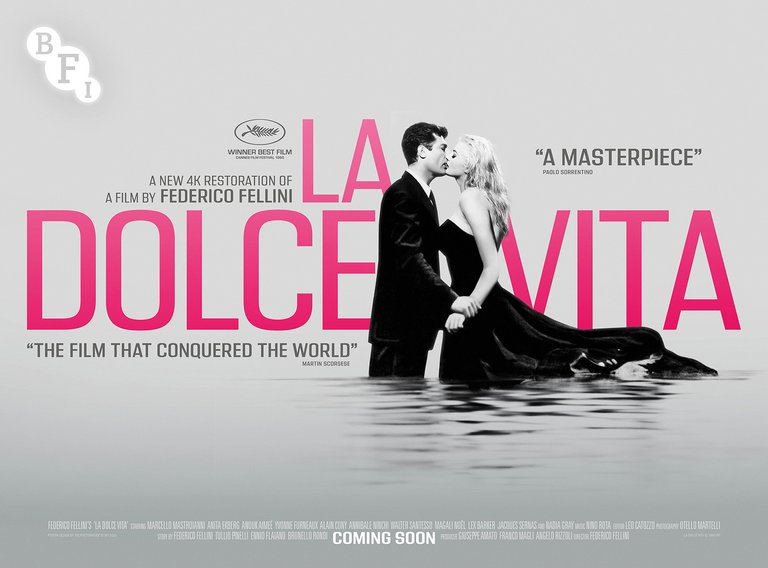 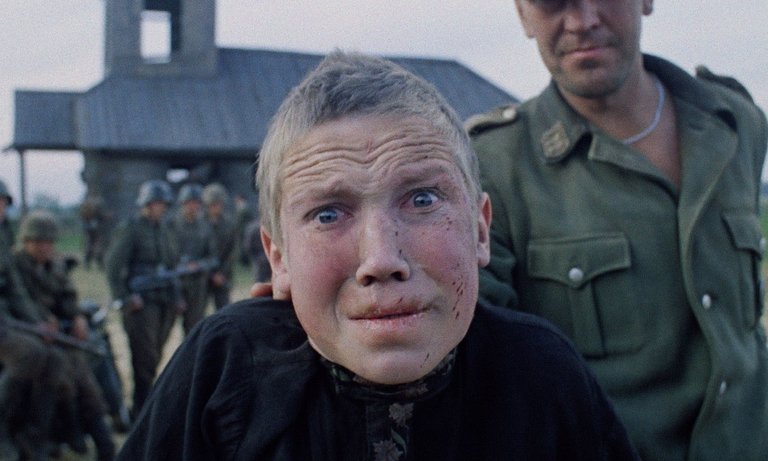 |
|---|
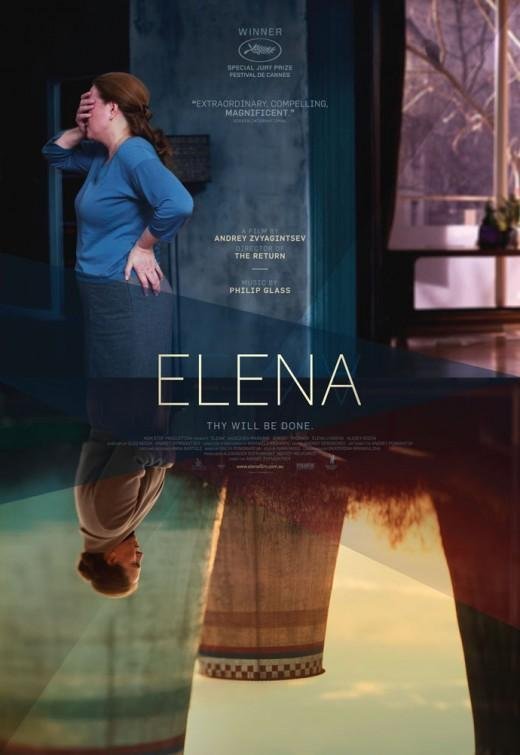
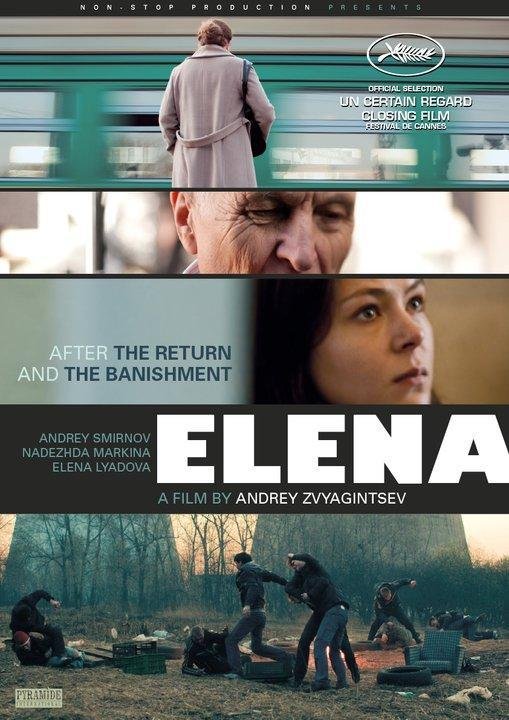

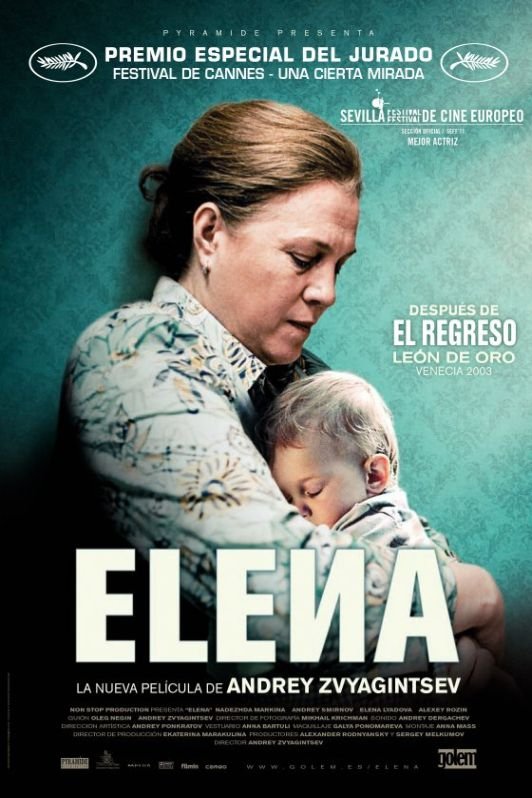
Yeehaw! This blog post is as thrilling as a wild bronco ride at sunrise!
Congratulations @cristiancaicedo! You have completed the following achievement on the Hive blockchain And have been rewarded with New badge(s)
Your next target is to reach 190000 upvotes.
You can view your badges on your board and compare yourself to others in the Ranking
If you no longer want to receive notifications, reply to this comment with the word
STOPCheck out our last posts: